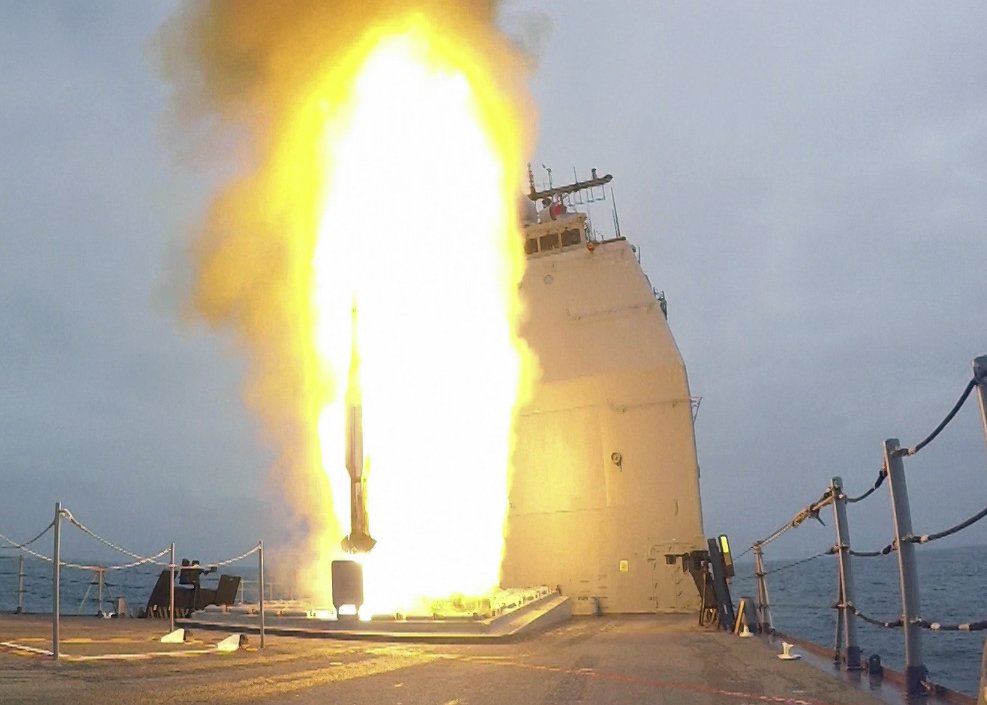[h=1]Bill Clinton Paved the Way for a Nuclear North Korea[/h][h=2]Democratic president's 1994 dealmaking with Pyongyang started a process that led to ICBM capabilities[/h]
On Oct. 18, 1994, Clinton approved a plan to arrange more than $4 billion in energy aid to North Korea over the course of a decade, in return for a commitment from the country’s Communist leadership to freeze and gradually dismantle its nuclear weapons development program, according to The New York Times.
The “complex” deal was to de-escalate the situation on the Korean peninsula, where the two Korean nations never negotiated a peace treaty after the Korean War ended in armistice in 1953.
“This agreement is good for the United States, good for our allies, and good for the safety of the entire world,” said Clinton in 1994. “It’s a crucial step toward drawing North Korea into the global community.”
The drawing-in never happened. North Korea has become more isolated and dangerous. And after years of furtive activity in North Korea, attempts to placate the Communist state seem to have only encouraged its dangerous leaders.
“The North Korean deal of 1994 is the prototype for why open societies should not negotiate arms control agreements with rogue regimes,” said Robert Kaufman, professor of public policy at Pepperdine University. “The North Koreans duped Jimmy Carter — an emissary of Clinton — and the Clinton administration to subsidize the North Korean nuclear program in exchange for the counterfeit promise that North Korea would limit itself to civilian nuclear power.”
Kaufman said the agreement tranquilized the West while the North Koreans proceeded to cross the nuclear threshold, which they announced in 2002 after pocketing billions from the West.
“The North Korean deal of 1994 is the prototype for why open societies should not negotiate arms control agreements with rogue regimes.”
On Oct. 18, 1994, Clinton approved a plan to arrange more than $4 billion in energy aid to North Korea over the course of a decade, in return for a commitment from the country’s Communist leadership to freeze and gradually dismantle its nuclear weapons development program, according to The New York Times.
The “complex” deal was to de-escalate the situation on the Korean peninsula, where the two Korean nations never negotiated a peace treaty after the Korean War ended in armistice in 1953.
“This agreement is good for the United States, good for our allies, and good for the safety of the entire world,” said Clinton in 1994. “It’s a crucial step toward drawing North Korea into the global community.”
The drawing-in never happened. North Korea has become more isolated and dangerous. And after years of furtive activity in North Korea, attempts to placate the Communist state seem to have only encouraged its dangerous leaders.
“The North Korean deal of 1994 is the prototype for why open societies should not negotiate arms control agreements with rogue regimes,” said Robert Kaufman, professor of public policy at Pepperdine University. “The North Koreans duped Jimmy Carter — an emissary of Clinton — and the Clinton administration to subsidize the North Korean nuclear program in exchange for the counterfeit promise that North Korea would limit itself to civilian nuclear power.”
Kaufman said the agreement tranquilized the West while the North Koreans proceeded to cross the nuclear threshold, which they announced in 2002 after pocketing billions from the West.
“The North Korean deal of 1994 is the prototype for why open societies should not negotiate arms control agreements with rogue regimes.”

 U.S. Pacific Command
U.S. Pacific Command






